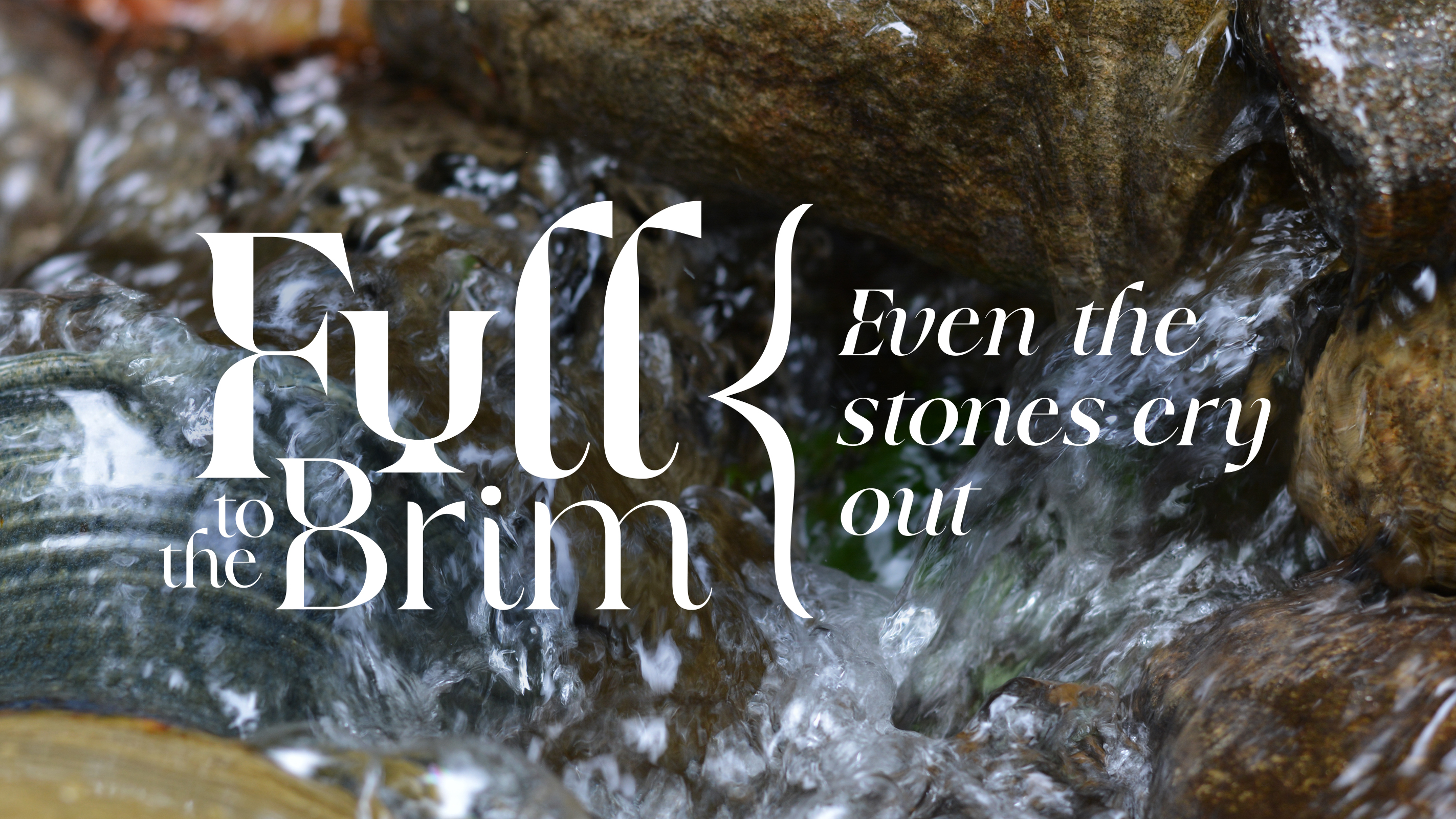
By Annie Hardison-Moody
On Palm Sunday, does anyone else immediately think of the Jesus Christ Superstar song, “Hosanna”? I’m a lifelong musical nerd, and this show was one of the first that I listened to (over and over and over again, according to my family). I loved the latest NBC version with John Legend portraying Jesus. I particularly appreciated how they captured the cacophony of the “Hosanna” song through the movement of the camera, actors, and musicians.
As in scripture, in the song, Jesus reminds the Pharisees that they cannot quiet the crowds that join him as he makes the journey to Jerusalem. In the scripture we hear Jesus say, “I tell you, if these were silent, the stones would shout out”(Luke 19:40).
In “Hosanna,” Jesus sings:
“Why waste your breath moaning at the crowd?
Nothing can be done to stop the shouting
If every tongue was still, the noise would still continue
The rocks and stones themselves would start to sing”
As with the song, more is happening behind the Hosannas we hear from the chorus. The song’s discordant notes (which – nerd alert – I think are more pronounced in the earlier cast versions than the NBC one) remind us that along with this joy, a good deal of pain and suffering is coming. The chorus’s Hosannas become pleading, as the people ask Jesus to fight for them, to die for them. And the Pharisees rebuke Jesus and the “common crowd” following in his wake. Jesus meets all of this with love: “Sing out for yourselves,” the song goes, “for you are blessed. There is not one of you who cannot win the kingdom – the slow the suffering, the quick the dead.”
In both the musical and in our Easter story, harrowing and hard days are ahead for Jesus, his followers, and the city of Jerusalem. Jesus’ triumphant entry is followed by his entreaties, prayers, and anger at the city dwellers’ refusal to embrace the fullness of God’s love and turn toward righteousness, justice, and peace. Jesus weeps for the city, lamenting that, “If you, even you, had only recognized on this day the things that make for peace! But now they are hidden from your eyes” (Luke 19:42). The boldness of Hosanna is met with Jesus’ tears and rebuke, for what the people did not see, for what they did not say.
As he arrives in Jerusalem, amidst all of this, the “stones would shout out,” Jesus says, but what – I wonder – would they say? And what would they say today? The stone metaphor is an apt one for our congregation of living stones, and it’s something for us to ponder with intention this Palm Sunday. As we enter this Holy Week with joy and Hosannas, let us also remember Jesus’ call to recognize and live into the “things that make for peace” in our world. This isn’t an easy task – like the people of Jerusalem, it’s often more convenient to focus on singing praises instead of turning inward to investigate where we’ve wronged each other, or the ways that we haven’t called attention to exploitation, oppression, suffering, and hurt wherever they exist. What are we as God’s living stones meant to call out or say in our world today?
What are we as God’s living stones meant to call out or say in our world today?
When Jesus looked around after the Hosanna choruses had ended, he lamented the things that were not said and seen. “As he came near and saw the city, he wept over it..” (Luke 19:41). As we enter Holy Week, I wonder: Where is Jesus weeping today? Is it for us?
This divine compassion – the tears of Jesus – continues to overflow, even today. Compassion for our suffering. Compassion for the ways we have failed ourselves and others. Compassion for a world that is not as it should be. Look and see, listen, Jesus calls to us – even the stones are shouting around you.
Although it might be impossible to see as Jesus sees, the reality is that this is what we are called to do. As theologian Wendy Farley writes in her book Gathering Those Driven Away, “the yoke is easy and the burden light, but it is also more excruciating than the most exacting morality…It reflects a divine kingdom not awaiting us ‘in the sky, Lord, in the sky,’ but here and now. It is no wonder that Jesus’ friends and family think he is crazy (Mark 3: 21-22). He lives in a world governed by love – a world infinitely more generous and more exacting than the one with which we are familiar” (p. 204).
It isn’t easy to see what we need to see, to bring about God’s justice, love, and peace to this Earth. But the Easter story isn’t an easy one to tell. The Easter story is a tragic one – it holds together immense joy and immeasurable loss and reminds us, as theologian Serene Jones writes, “that God’s gospel cannot ever be finished” (p. 97). As we begin the week with Hosanna’s, let us think together about what we aren’t seeing or hearing, about the things that need to be said or shouted. Let us remember that at Easter, the delight and the tears co-mingle, as we come into this Holy Week contemplating a compassion that loves and holds us, even as it weeps.